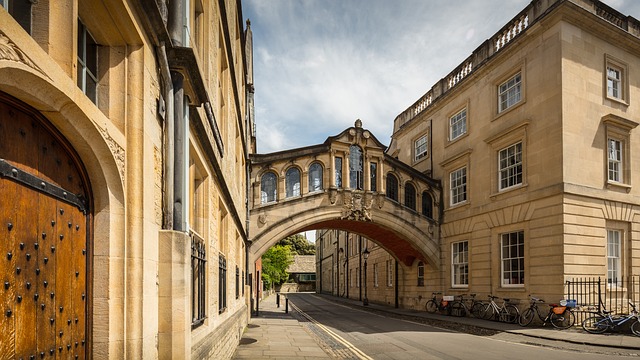Applying to Oxbridge? The UCAS application deadline is Monday 15th October and soon after students should start preparing for their interview. Oxbridge interviews are, for some, the most challenging part of the application. However, it’s also a unique and exciting opportunity to meet admissions tutors face to face and make a lasting impression. To succeed in the interview, preparation is key. So here are a few tips on how you can help your child prepare.
Why Oxbridge should accept your child?
This is essentially the question that the whole admissions process seeks to answer. With your child, brainstorm some key attributes they should convey to the interviewer to help them build a strong answer to this question.
Interviewers look for students who are passionate about their subject. They should also show that they are committed to studying hard, as well as capable of making interesting, logical, and well-informed arguments. Succeeding in the interview is not about making neat, brilliant points or responding to impossible questions. Interviews are an opportunity to see how students think and how interested they are in the subject.
Personal statement
Test your child on the key points of their personal statement. Even if you don’t have detailed knowledge about the content, it will will still be hugely valuable for students to practice saying their thoughts out loud.
The interviewer will base their questions on the student’s personal statement because this is where the student has outlined what makes them passionate about the subject. For this reason, personal statements need to be memorised extremely well. If a book, author, play, historical figure, or anything specific has been mentioned, make sure your child is able to talk about it confidently and with a sense of authority. If you can do this, your child will feel less daunted by the questions.
Theoretical questions
Test your children with questions relating to the subject they want to study. If they’re finding this difficult, help them find articles, podcast and, videos which will expand their knowledge and set them apart in the interview.
As serious academics, your interviewers want to see students engage with their subject on a theoretical level and be able to answer more abstract questions surrounding the subject. For example, what is history? to a prospective history student or, what is justice? for a lawyer (for more examples click here). Encourage your children to approach them thoughtfully, it’s ok to take a long pause before talking. Interviewers are not looking for a specific answer and there is no right or wrong – it’s more about how they deal with the question and how they structure the response.
Practice, Practice, Practice
Even though you can never predict exactly what will be asked in the interview, practice is still important. Sit down with your children and ask interview-style questions, for example:
- Why have you applied for this course?
- Why have you applied to Oxford/Cambridge?
- Why have you applied to this college?
- What contribution do you think you might make to college life?
- At the end of your time here, how should we measure your success?
- Why should anyone go to university?
It can be awkward at the beginning but it will improve their confidence the more they practice talking through ideas.
Enjoy it!
Oxbridge interviews are an opportunity for your children to get a sense of what studying at Oxford or Cambridge will actually be like. This is a fantastic opportunity for them! The process allows a student to learn more about a subject that they are interested in, it is not a stressful experience but an exciting one.
If you need any help preparing your child for interviews, there are many tutors on our site who are studying or have graduated from Oxford and Cambridge. They all want to help so find a tutor today!
Here is how our tutor, Holly, has been helping her students:
Hi! I went through a personal statement just last night written by a student hoping to study Medicine at Oxford. She said that the feedback was really useful as it was specific and detailed. I also offered suggestions of different ways of phrasing things rather than saying ‘be more x y or z’. Similarly, I made suggestions of what topics she would be wise to read around before attending an interview based on what was referenced in her personal statement.
Collating students achievements / attributes and helping them present them in a way that is easy to read, is something I enjoy. Teaching them what will catch the eye of a tired Oxford Tutor who has been sifting through hundreds of statements! I do feel 5 years at Oxford Medical School has meant I have got to know many of the tutors and have a realistic idea of what would impress them.
In my lesson last night I started by asking interview style questions based on her personal statement draft. This highlighted to her parts that she had not got across clearly and aspects she had omitted. We then went through it in more detail and I made suggestions for edits.
On the day
Stay calm. You and your child have prepared for this. Make sure they wear smart but comfortable clothes. You want your child to make a good impression but they should still show their personality and feel at ease in the interview room. Arrive on time – make sure to take note of how long travel will take and any traffic you might experience. There can be a lot of waiting around on the day and your child may have more interviews than other applicants… this is normal. Try to encourage them to make the most out of the day. Chatting to other applicants, looking around their college and, reading over their preparation notes will help them stay calm throughout the day.
For more information visit: the Oxford and Cambridge interview information websites.
Good luck!
By Tom H.




